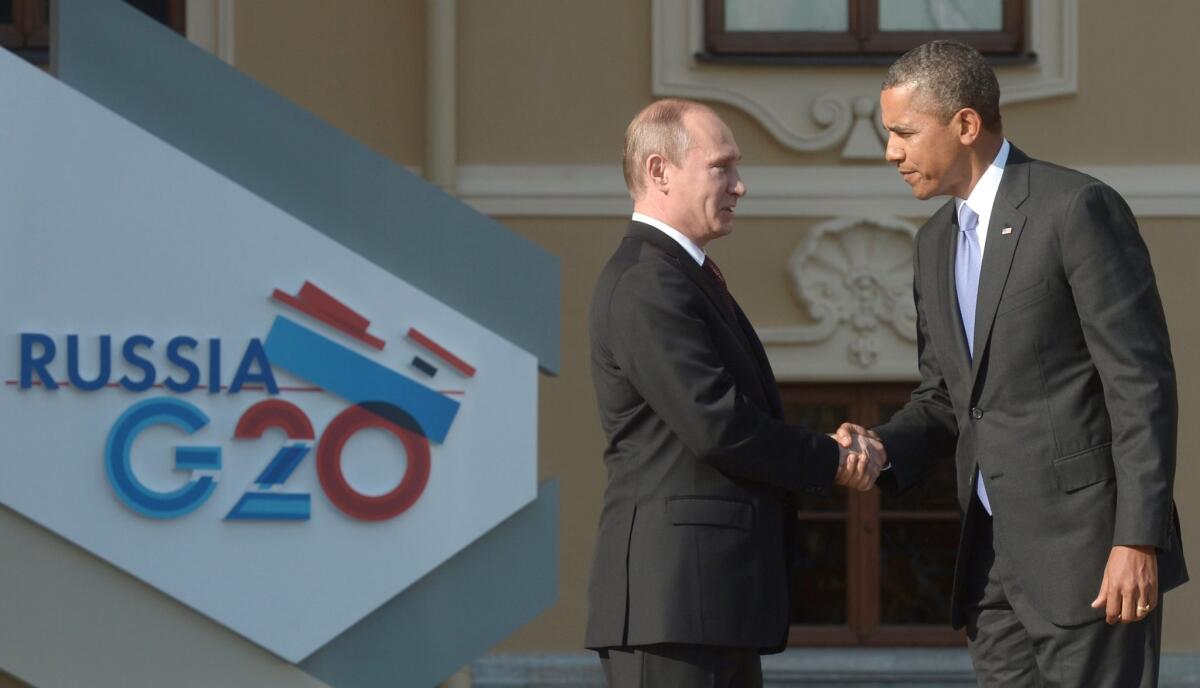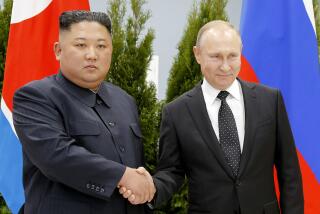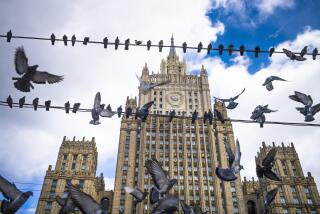Editorial: Engaging Russia on Syria

Russian President Vladimir Putin shakes hands with President Obama during a welcome ceremony for participants in a G20 summit in St. Petersburg on Sept. 5, 2013.
President Obama reportedly is considering accepting Vladimir Putin’s proposal for U.S.-Russian discussions on Syria. The dialogue would begin with talks between the two countries’ military leaders about recent Russian military activities in that country — in order to avoid what Russia’s foreign minister called “unintended incidents” — but could lead to a meeting between Obama and Putin at the United Nations this month.
Given Russia’s stalwart support for the brutal President Bashar Assad, it’s entirely possible that the talks will go nowhere and instead will elevate Putin, a leader that the U.S. has isolated (with some success) in response to Russia’s aggression in Ukraine. But those risks are worth taking if there’s a reasonable chance that they’ll yield a joint strategy that would contain Islamic State without cementing Assad’s hold on power.
Russia has used its veto in the U.N. Security Council to block calls for a political settlement in which Assad would relinquish power. Lately Putin has seized on the rise of Islamic State to suggest that shoring up Assad is the best way to counter “terrorism and extremism.” Obama, who said four years ago that Assad should “step aside,” hardly is going to endorse that proposition.
Still, the administration’s actions suggest that regime change in Damascus is third on its list of priorities in Syria. The first is defeating Islamic State. Then comes the humanitarian imperative of ending the fighting that has produced a horrifying hemorrhage of refugees.
Russia under Putin has been alarmingly assertive in challenging the world order that emerged after the fall of Communism, and it surely sees the Syrian conflict as an opportunity to increase its influence in the Middle East. But Russian involvement could be constructive if it included both assistance in the campaign against Islamic State and pressure on Assad to step down or at least share power with opponents. And it’s worth remembering that even as the U.S. was imposing sanctions for Russia’s meddling in Ukraine, it was able to work with Russian diplomats on the Iran nuclear agreement.
It’s tempting to say that the United States should refuse to talk to Putin and concentrate on raising its own military profile in the Middle East as a way of shaping events there. But after protracted and costly wars in Afghanistan and Iraq, Americans understandably lack the appetite for another major military intervention.
That is why, even as he promised to “degrade and ultimately destroy” Islamic State, Obama said he wouldn’t commit ground combat forces. Instead, he said last year, he would “rally other nations” to join the fight. It’s at least worth exploring the possibility that Russia is willing to be one of them.
Follow the Opinion section on Twitter @latimesopinion and Facebook
More to Read
A cure for the common opinion
Get thought-provoking perspectives with our weekly newsletter.
You may occasionally receive promotional content from the Los Angeles Times.






